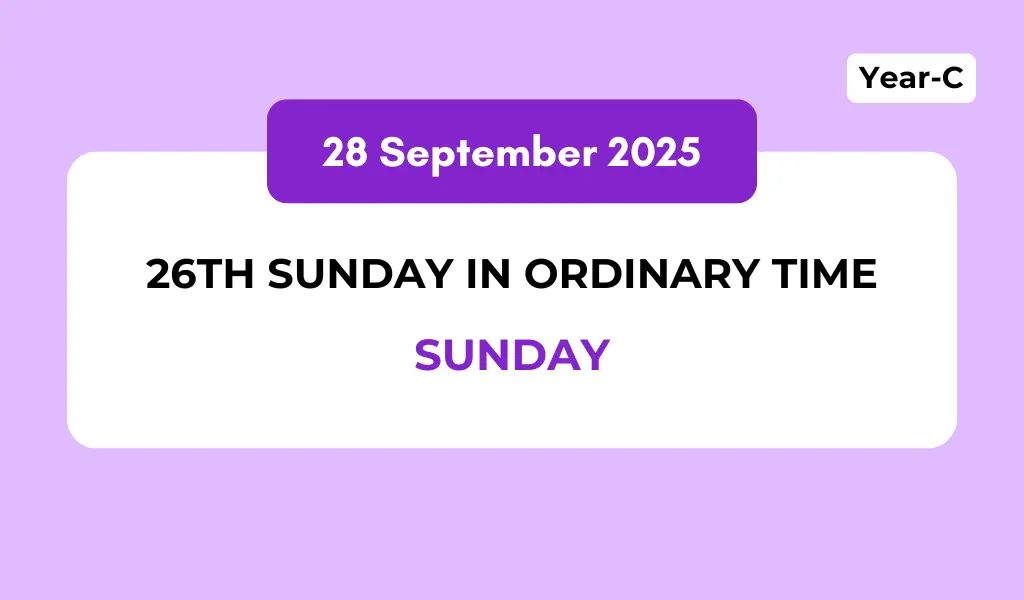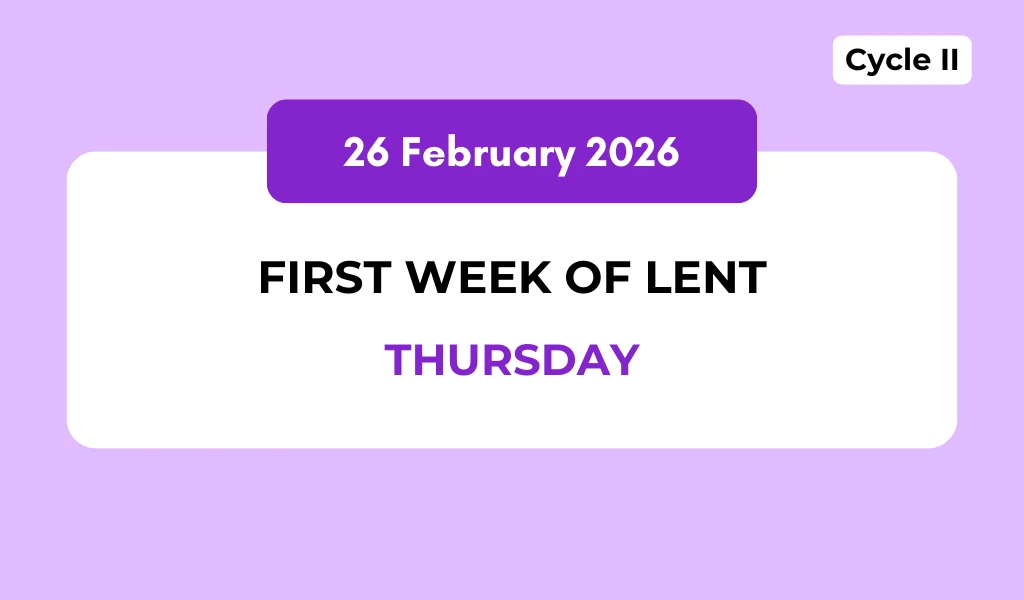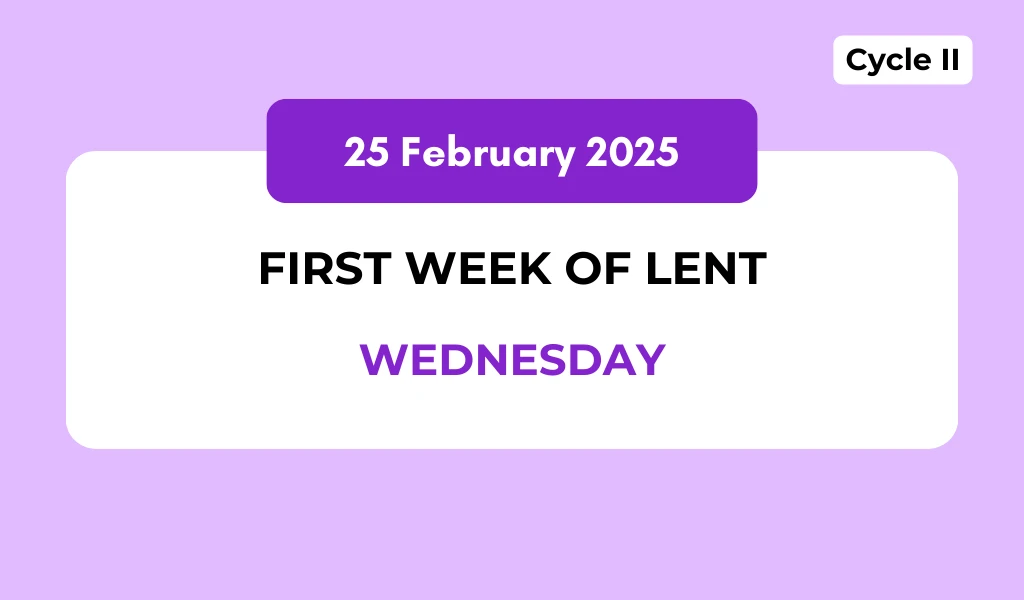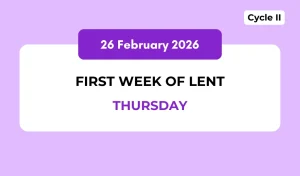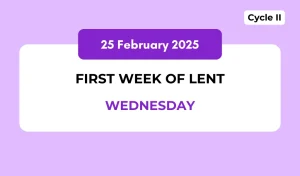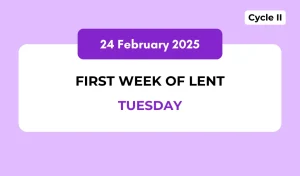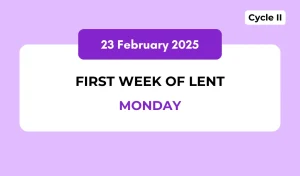Catholic Mass Readings and Reflection September 28, 2025
Sunday – 26th Sunday in Ordinary Time
28th September 2025 (Sunday)
Psalter: Week 2
Readings of the Day
First Reading: Amos 6:1a, 4-7
Woe to those who are at ease in Zion, and to those who feel secure on the mountain of Samaria, the notable men of the first of the nations, to whom the house of Israel comes! “Woe to those who lie on beds of ivory and stretch themselves out on their couches, and eat lambs from the flock and calves from the midst of the stall, who sing idle songs to the sound of the harp and like David invent for themselves instruments of music, who drink wine in bowls and anoint themselves with the finest oils, but are not grieved over the ruin of Joseph! Therefore they shall now be the first of those who go into exile, and the revelry of those who stretch themselves out shall pass away.”
Psalm 146:7, 8-9, 9-10 R. (1b)
R/. Come, Lord and save us
Second Reading: 1 Timothy 6:11-16
As for you, O man of God, flee these things. Pursue righteousness, godliness, faith, love, steadfastness, gentleness. Fight the good fight of the faith. Take hold of the eternal life to which you were called and about which you made the good confession in the presence of many witnesses. I charge you in the presence of God, who gives life to all things, and of Christ Jesus, who in his testimony before Pontius Pilate made the good confession, to keep the commandment unstained and free from reproach until the appearing of our Lord Jesus Christ, which he will display at the proper time—he who is the blessed and only Sovereign, the King of kings and Lord of lords, who alone has immortality, who dwells in unapproachable light, whom no one has ever seen or can see. To him be honor and eternal dominion. Amen.
Gospel Acclamation
V/. Alleluia
R/. Alleluia
V/. Though Jesus Christ was rich, yet for your sake he became poor, so that you by his poverty might become rich
R/. Alleluia
Gospel: Luke 16:19-31
At that time: Jesus said to the disciples, “There was a rich man who was clothed in purple and fine linen and who feasted sumptuously every day. And at his gate was laid a poor man named Lazarus, covered with sores, who desired to be fed with what fell from the rich man’s table. Moreover, even the dogs came and licked his sores. The poor man died and was carried by the angels to Abraham’s side. The rich man also died and was buried, and in Hades, being in torment, he lifted up his eyes and saw Abraham far off and Lazarus at his side. And he called out, ‘Father Abraham, have mercy on me, and send Lazarus to dip the end of his finger in water and cool my tongue, for I am in anguish in this flame.’ But Abraham said, ‘Child, remember that you in your lifetime received your good things, and Lazarus in like manner bad things; but now he is comforted here, and you are in anguish. And besides all this, between us and you a great chasm has been fixed, in order that those who would pass from here to you may not be able, and none may cross from there to us.’ And he said, ‘Then I beg you, father, to send him to my father’s house— for I have five brothers—so that he may warn them, lest they also come into this place of torment.’ But Abraham said, ‘They have Moses and the Prophets; let them hear them.’ And he said, ‘No, father Abraham, but if someone goes to them from the dead, they will repent.’ He said to him, ‘If they do not hear Moses and the Prophets, neither will they be convinced if someone should rise from the dead.”
Daily Gospel Reflection
Sunday – 26th Sunday in Ordinary Time
Main Point: Not only doing the wrong is wrong but also not doing the right when possible and needed, is also a big wrong (which is often called the sin of omission, in contrast to the sin of commission)
1. The parable of the rich man and poor Lazarus in the gospel is a typical indicator of the situation of today’s society. There is a steep social and economic inequality, a sharp contrast between the rich and the poor, the clearest dividing line between the haves and have nots.
2. There are those who “get fattened” with affluence and surplus and those who are “forced to starve”. There are those who “feast every day”, affording to let plenty of “scraps to fall down” from their tables and those who wait desperately to collect and swallow those fallen scraps. There are those who “dress in purple” in extravagance and those who “cover themselves with sores”. There are those who enjoy the “company of the high-class people” and those who “keep company with the dogs”.
3. Such an abominable and unjustifiable injustice is the offshoot of indifference and negligence This is again due to a lack of fraternal responsibility. This, in turn, is caused by lack of sensitivity. Finally, all this is rooted in a heightened individualism.
4. This is the greatest malaise of our human life, wherein others do not count at all. There is neither respect nor concern for others’ difficulties. There is no basic human feeling toward others. Sadly there is not even a little prick of conscience. Human sensitivity has become so blunt that no tear or pain of others would touch and move many.
5. Just reflect on the height of indifference and insensitivity of many: While many go about in rags and worn outs, they can dress in purple and lavish waste. While many struggle for a potful of potable water, they can booze themselves in the hallucination of liquor bottles. While many crawl into huts and slums, they can stroll leisurely in spacious multi-floored buildings. While for many, three meals a day is a luxury, they can throw huge amounts on wasteful parties. While many sweat their blood to get a good education and find a moderate job, these can pour money like water to buy elite education and sweatless jobs. Is this not a blatant contradiction and heartless injustice?
6. The point here is not implicit jealousy against the rich. It is not an intolerant resentment against all those who have better comfort than others. In fact, the fault of the rich man in the gospel is nothing direct. Directly he did no harm or injustice to the poor Lazarus.
7. But his greatest fault was his total insensitivity, lack of fraternal responsibility toward the other. He had no attention at all on the poor man because his attention was fully on his own comfort and satisfaction. He would have done better if he were to share a little of his material prosperity with the less fortunate and alleviate their misery.
8. The story also drives home very forcefully the truth that those who fail in charity and generosity toward others will receive a fateful destiny, while those who suffer in good faith here on earth will obtain plentitude and eternal joy. They are really foolish, who are caught up with passing pleasures and enjoyments and lose sight of the heavenly glory and eternal joy.
9. They are destined to eternal misery, those who neglect their fundamental fraternal responsibility for the wellbeing of others, even being capable to reduce their plight. One may close conveniently one’s eyes and heart to the struggle of others but cannot close God’s eyes to see our injustice!
My Practice: The value and joy of life is not in self-interest and self-gain but in being benevolent and beneficial to others
